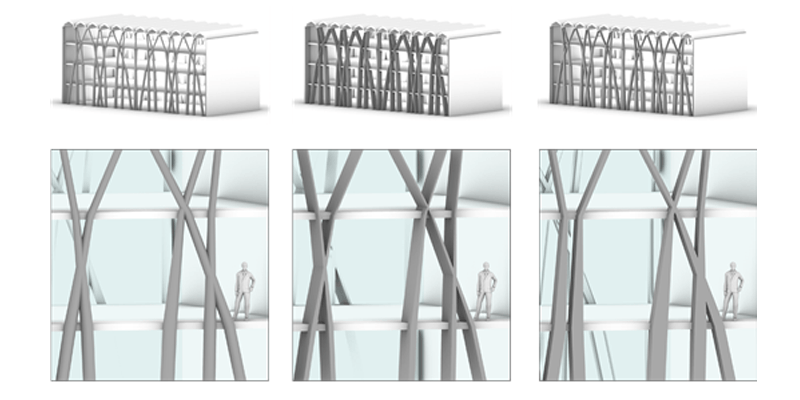Downloads
DOI:
https://doi.org/10.7480/jfde.2021.1.5423Keywords:
holistic design approach, building envelopes, graphic statics, conceptual structural design, machine learning, simplicity and performanceAbstract
The design of building envelopes requires a negotiation between qualitative and quantitative aspects belonging to different disciplines, such as architecture, structural design, and building physics. In contrast to hierarchical linear approaches in which various design aspects are considered and conceived sequentially, holistic frameworks allow such aspects to be taken into consideration simultaneously. However, these multi-disciplinary approaches often lead to the formulation of complex high-dimensional design spaces of solutions that are generally not easy to handle manually. Computational optimisation techniques may offer a solution to this problem; however, they mainly focus on quantitative aspects, not always guaranteeing the flexibility and interactive responsiveness designers need in the early design stage. The use of intuitive geometry-based generative tools, in combination with machine learning algorithms, is a way to overcome the issues that arise when dealing with multi-dimensional design spaces without necessarily replacing the designer with the machine. The presented research follows a human-centred design framework in which the machine assists the human designer in generating, evaluating, and clustering large sets of design options. Through a case study, this paper suggests ways of making use of interactive tools that do not overlook the performance criteria or personal preferences.
How to Cite
Published
Issue
Section
License
Copyright (c) 2021 Federico Bertagna, Pierluigi D'Acunto, Patrick Ole Ohlbrock, Vahid Moosavi

This work is licensed under a Creative Commons Attribution 4.0 International License.
Authors or their institutions retain copyright to their publications without restrictions.
